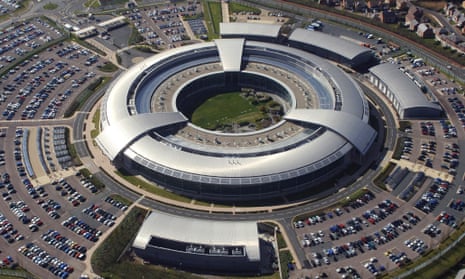The government’s electronic eavesdropping agency GCHQ spied illegally on Amnesty International, according to the tribunal responsible for handling complaints against the intelligence services.
Confirmation that surveillance took place emerged late on Wednesday, when the human rights group revealed that the Investigatory Powers Tribunal (IPT) sent it an email correcting an earlier judgment.
The extraordinary revision of a key detail in the ruling given on 22 June may alarm many supporters of Amnesty, who will want to know why it has been targeted.
In the original judgment, the IPT said that communications by the Egyptian Initiative for Personal Rights and the South African non-profit Legal Resources Centre had been illegally retained and examined.
In the email sent on Wednesday, the tribunal made it clear that it was Amnesty and not the Egyptian organisation that had been spied on – as well as the Legal Resources Centre in South Africa.
The breach of surveillance powers, under the Regulation of Investigatory Powers Act, related to retaining databases for longer than was permitted. Amnesty had been one of the claimants in the case, but in the original judgment the IPT made “no determination” on the organisation’s complaint – implying that either their emails and phone calls were not intercepted or that they were intercepted but by legal means.
Responding to the revelation, Salil Shetty, Amnesty International’s secretary general, said: “It’s outrageous that what has been often presented as being the domain of despotic rulers has been done on British soil, by the British government.
“How can we be expected to carry out our crucial work around the world if human rights defenders and victims of abuse can now credibly believe their confidential correspondence with us is likely to end up in the hands of governments?

“After 18 months of litigation and all the denials and subterfuge that entailed, we now have confirmation that we were in fact subjected to UK government mass surveillance. The revelation that the UK government has been spying on Amnesty International highlights the gross inadequacies in the UK’s surveillance legislation.
“If they hadn’t stored our communications for longer than they were allowed to, we would never even have known. What’s worse, this would have been considered perfectly lawful.”
The IPT email made no mention of when or why Amnesty International was spied on, or what was done with the information obtained. The organisation is calling for an independent inquiry into how and why a UK intelligence agency has been spying on human rights organisations.
Eric King, deputy director of Privacy International, which also took a similar case to the IPT, said: “Our system of oversight and remedy has fundamentally failed. The communications of one of the world’s leading human rights organisations – Amnesty International – were targeted by British spies, unlawfully, and our commissioners and courts failed to admit it, depriving individuals around the world of the validation and condemnation of, and redress for, unlawful government practices that is so desperately needed.
“Without Edward Snowden, without an 18-month legal battle, without an honest reckoning by whichever upstanding individual spotted and admitted this grave error, the unlawful conduct of the British intelligence agencies would never have been exposed by the very court charged with exposing it.
“Today’s farcical developments places into sharp relief the obvious problems with secret tribunals where only one side gets to see, and challenge, the evidence. Five experienced judges inspected the secret evidence, seemingly didn’t understand it, and wrote a judgement that turned out to be untrue. We need to know why and how this happened.
“Any confidence that our current oversight could keep GCHQ in check has evaporated. Only radical reforms will ensure this never happens again.”
Issuing an apology, the IPT said: “The tribunal regrets the error
which led to the mistaken attribution in its determination, but would emphasise that such error had no impact upon, and occurred after, its careful consideration and judicial determination of the facts before it.”

Comments (…)
Sign in or create your Guardian account to join the discussion